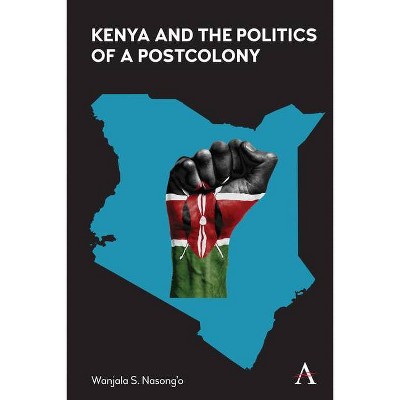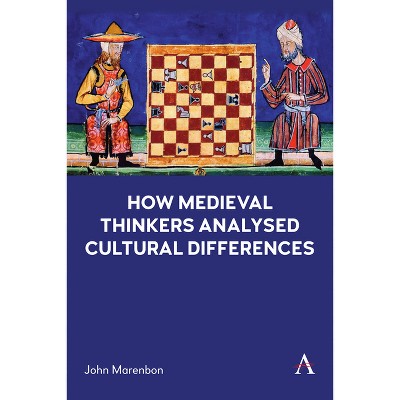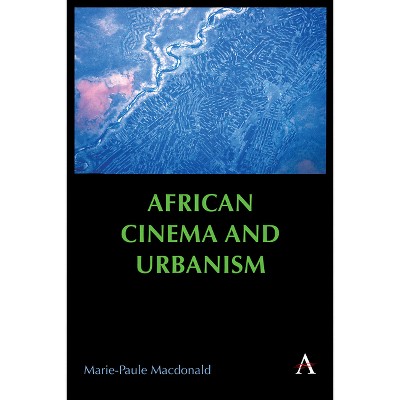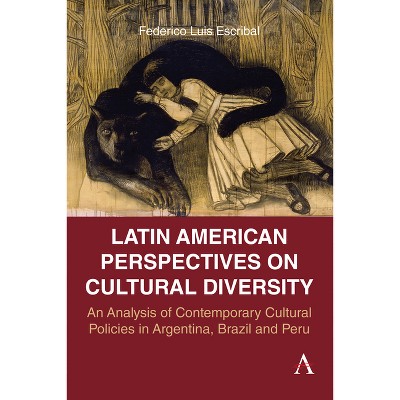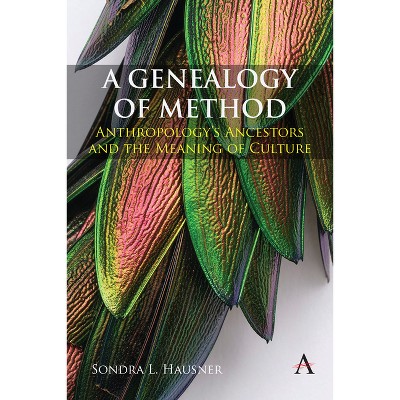Legacies of Forced Removals in South Africa - (Anthem Advances in African Cultural Studies) by Efua Tembisa Prah (Hardcover)

About this item
Highlights
- A poignant exploration of the impact of histories of displacement and the subsequent marginalisations this causes on children's experiences in post-apartheid South Africa The book explores themes of power, ideology, and identity formation, particularly through a post-structuralist lens.
- About the Author: Efua Prah is an Associate Professor of Medical Anthropology at the University of Johannesburg.
- 156 Pages
- Social Science, Anthropology
- Series Name: Anthem Advances in African Cultural Studies
Description
About the Book
This book focuses on experiences of six children from various backgrounds who lived in temporary relocation areas in Cape Town, South Africa. Themes identified examined the effects of forced removals, displacement, and marginality on the lifeworld's of children.Book Synopsis
A poignant exploration of the impact of histories of displacement and the subsequent marginalisations this causes on children's experiences in post-apartheid South Africa The book explores themes of power, ideology, and identity formation, particularly through a post-structuralist lens. It examines how the state influences the well-being of its citizens, focusing on children living in marginalized circumstances. By following the lives of several children exposed to pervasive violence, the author illustrates how these experiences shape their identities and the broader societal context. The study identifies key themes such as the effects of forced removals, displacement, marginalization, and the prevalence of violence in Blue Waters Refugee Camp Site C and Symphony Way Temporary Relocation Area. By examining pathways and patterns related to identity, embodiment, health and illness, as well as the expressive nature of theatre, the research yielded rich ethnographic data on children's experiences in these settings. Central to this study, and to the broader field of children and childhood studies, is the understanding that children are perceptive, active agents in shaping their own unfolding narratives.Taking into account the violence that permeates through everyday life in South Africa, this book makes an essential contribution to future housing policy design and implementation by deepening our understanding of the socioeconomic structures that exacerbate divisions based on geography, race and class. Evidently, for children living in frequent and forced mobility, their experiences are suffused with violent tensions that follow them across the changing landscapes generated by frequent mobility.Review Quotes
"This book is a welcome and important addition to the growing field of anthropologies of childhood in southern Africa. What is striking about this text is the engagement at all times with questions of place, and centrally with the instability of place in fractured and precarious childhoods. There is also a remarkable affective engagement - Prah resists implicit calls to spurious objectivity, and instead shows through her work that the best social science is the product of both head and heart. This book should be of interest and great use not just to anthropologists but also to anyone interested in what childhood is and means in contemporary South Africa." - Leslie Swartz, Professor of Psychology, Stellenbosch University, Editor in Chief of South African Journal of Science
"This book adds to the existing scholarship on the anthropology of children in Africa. It stands out, uniquely from the pack, in its methodological and theoretical formulations. It is provocative and so-phisticated, thus opening up previously uncharted paths in the scholarship on childhood, urban vio-lence, housing, and social justice." - Saheed Aderinto, editor of Children and Childhood in Colonial Nigerian Histories
"This book is a welcome and important addition to the growing field of anthropologies of childhood in southern Africa. What is striking about this text is the engagement at all times with questions of place, and centrally with the instability of place in fractured and precarious childhoods. There is also a remarkable affective engagement - Prah resists implicit calls to spurious objectivity, and instead shows through her work that the best social science is the product of both head and heart. This book should be of interest and great use not just to anthropologists but also to anyone interested in what childhood is and means in contemporary South Africa." -- Leslie Swartz, Professor of Psychology, Stellenbosch University, Editor in Chief of South African Journal of Science
"This book adds to the existing scholarship on the anthropology of children in Africa. It stands out, uniquely from the pack, in its methodological and theoretical formulations. It is provocative and so-phisticated, thus opening up previously uncharted paths in the scholarship on childhood, urban vio-lence, housing, and social justice." -- Saheed Aderinto, editor of Children and Childhood in Colonial Nigerian Histories
About the Author
Efua Prah is an Associate Professor of Medical Anthropology at the University of Johannesburg. Her scholarly interests range widely, and include anthropological theorisations in critical black studies, postcolonial studies and the emergent correlations between history and reproductive justice. She is Disciplinary Editor in Anthropology for the University of Johannesburg Press and Co-Editor of Anthropology Southern Africa.






